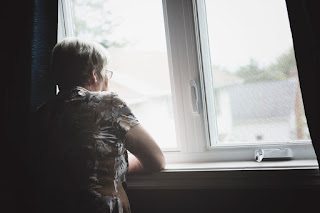As adults age, there is an increased focus on physical health. Maintaining a proper diet, checking in on hearing and vision, and tending to fitness. While we focus on our physical health, we often forget and neglect our social well-being. As we age, we lose loved ones and close friends. Our social circle begins to shrink, and it creates a sense of loneliness. Psychology Today reports that adults who are 80 years old and up are typically the loneliest. Those that are lonely are often more susceptible to mental and physical decline. To help you combat that, Visiting Angels Punta Gorda has come up with a few strategies. Here are a couple:
 Grow Your Social Circle - Maintaining your circle of close friends is always important and may even be an obvious thing to do in this situation. But when your close friends are not available, forming new friendships can be very beneficial. Going out to join book clubs and participating in events where you can share your hobbies are great ways to meet new people who you can develop a friendship with.
Grow Your Social Circle - Maintaining your circle of close friends is always important and may even be an obvious thing to do in this situation. But when your close friends are not available, forming new friendships can be very beneficial. Going out to join book clubs and participating in events where you can share your hobbies are great ways to meet new people who you can develop a friendship with.
Volunteering - Volunteering is a great way to socialize and combat loneliness. It helps you find a sense of purpose that brings satisfaction. Check your local library or church to find opportunities that will match your passions and hobbies. Realizing that you're needed by someone else and that you're making a difference gives you something worthwhile to wake up to.
A sense of loneliness in older adults is something that we may not put as much of an emphasis on compared to physical health, but it does not mean it is any less important. It can lead to a decline in physical and mental health. To read the full article and discover how to combat loneliness, visit: https://www.visitingangels.com/puntagorda/combatting-loneliness-in-older-adults-weekly-message_2234.
 Grow Your Social Circle - Maintaining your circle of close friends is always important and may even be an obvious thing to do in this situation. But when your close friends are not available, forming new friendships can be very beneficial. Going out to join book clubs and participating in events where you can share your hobbies are great ways to meet new people who you can develop a friendship with.
Grow Your Social Circle - Maintaining your circle of close friends is always important and may even be an obvious thing to do in this situation. But when your close friends are not available, forming new friendships can be very beneficial. Going out to join book clubs and participating in events where you can share your hobbies are great ways to meet new people who you can develop a friendship with.Volunteering - Volunteering is a great way to socialize and combat loneliness. It helps you find a sense of purpose that brings satisfaction. Check your local library or church to find opportunities that will match your passions and hobbies. Realizing that you're needed by someone else and that you're making a difference gives you something worthwhile to wake up to.
A sense of loneliness in older adults is something that we may not put as much of an emphasis on compared to physical health, but it does not mean it is any less important. It can lead to a decline in physical and mental health. To read the full article and discover how to combat loneliness, visit: https://www.visitingangels.com/puntagorda/combatting-loneliness-in-older-adults-weekly-message_2234.